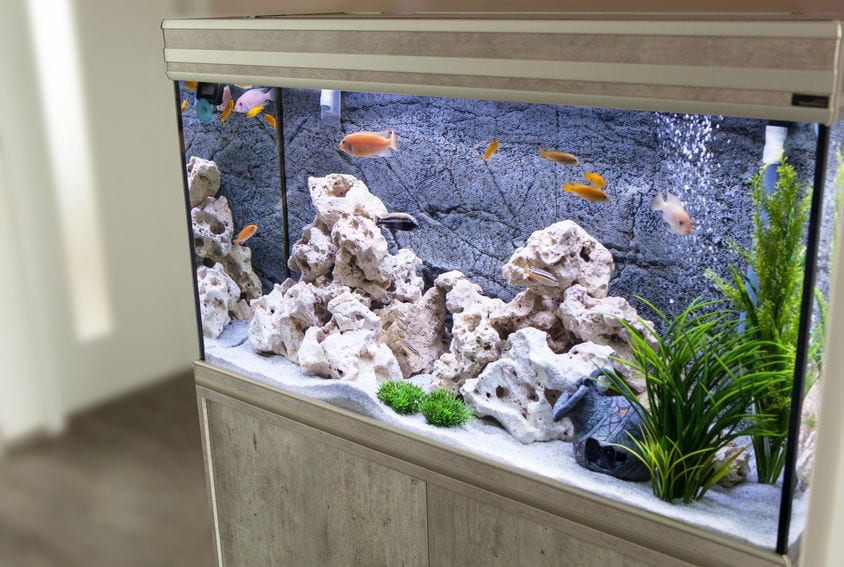Are you thinking about setting up a fish tank in your home? Maintaining an aquarium can be a rewarding endeavor. Along with caring for your fishy friends, there’s also safety concerns when dealing with fish tanks. They can leak, or even worse, break, if you don’t take basic precautions. There are also concerns when it comes to power supplies and accessories. Here’s a few tips to follow to make sure that your aquarium setup brings you years of joy – safely.
Avoiding A Broken Aquarium
Aquariums are made of very strong glass. But they can break if not properly handled and maintained. A sturdy stand is essential to preventing breakage. If the stand is uneven, it can cause stress on one side of the tank over the other, leading to leaks or cracks. You must make sure the stand is perfectly level. The stand also needs to be rated for the size and weight of the tank, or it could fail and cause extensive damage. Try to buy a stand from a store that can verify it’s weight capacity. Don’t build a stand yourself, unless you have an engineering degree or know someone who does.
Make sure the location of the aquarium is well planned and not in a high traffic area. You want to avoid having to move your tank once it’s set up, as moving them can be risky. If you do need to move a tank, make sure you remove the fish to a container with some water from the tank. Then drain the tank as much as possible, along with removing as much sand and decorations as you can to avoid damaging the glass.
If you’ve bought the tank used, be sure to inspect the glass for any cracks or in the plastic around the top and bottom and check to make sure the seals aren’t yellowing, flimsy or tattered. These kinds of tanks are instant disaster. Even if the seals and glass look fine, the tank should filled up at least halfway to be tested before bringing it into the home for use.
Avoiding Equipment Hazards
The tank itself isn’t the only thing that can present a hazard. Glass of any kind, such as lids, heaters or decorations, can also be dangerous if not handled properly. A heater can roll off and crash onto the floor or cause a lot of damage if turned on before covered in the proper amount of water. When removing a lid, never lay it on the floor where it can be stepped on or lean it up against a spot where it can tip over and shatter. If cleaning decorations, take care with glass or decorations made of other easily breakable materials.
Electrical Concerns
The power strips and outlets used to power your tank filters and accessories can pose a threat if not managed correctly. To keep water out of outlets or power strips be sure to use a ‘drip loop’ in all your equipment cords. ‘Drip loops’ are easy. Just let a cord hang down below the outlet and if water some how finds it’s way down the cord, it’ll just simply drip of the bottom of the loop. For cords going to a power strip, keep the power strip above ground about a foot and the the cords drop below it.
When done properly, and with knowledge of the basics, an aquarium is a delightfully fun addition to the home and will offer years of enjoyment.
